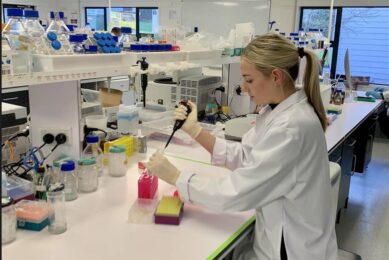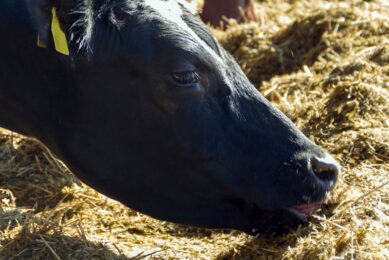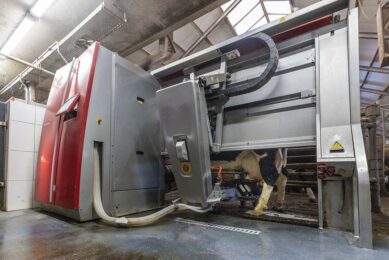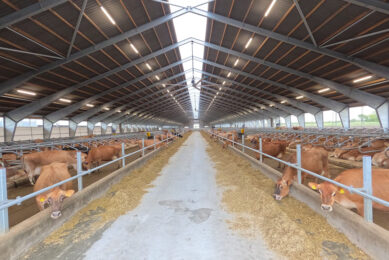Dairy farmer well-being and impacts of automation
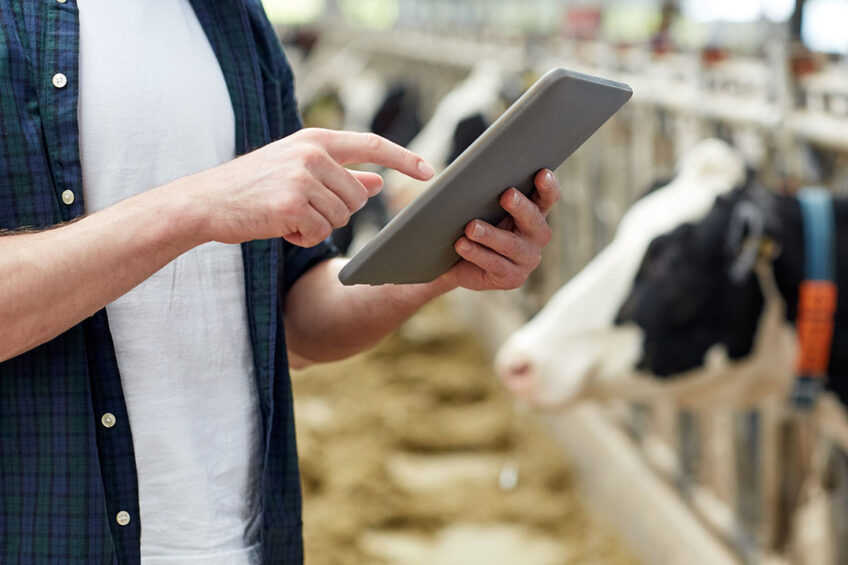
Studies in Canada and Sweden will hopefully lead to more research on the mental health benefits of using robotic milking systems and automated feeders, here we look at what has been shown so far.
At this point in time, many farmers in Europe, North America, and beyond have decided to invest in automated milking systems (AMS) to reap their many benefits. These systems, first and foremost, provide significant labour savings, time flexibility and generally a little more sleep for dairy operators. AMS also provide ongoing analysis of the performance and health of individual cows, enabling improved management of cow health and welfare.

However, AMS also have the potential to reduce dairy farmer stress. That degree of stress was quantified a few years ago for dairy operators in Sweden. The scientists found that dairy operators face significant pressures, whether those are financial or related to increasing social and environmental responsibility. “Furthermore, both traditional and industrial farms are highly dependent on external conditions, such as weather, fluctuating markets, and regulations,” noted the study authors. “Possible external stressors include disease outbreaks, taxes related to dairy production, and recent negative societal attitudes to farming in general.” The researchers concluded that “high work demands and expectations coupled with low control and lack of social support can lead to…increased stress levels, ill mental health, depression, and in the worst cases, suicide.”
Back in 2018, the same lead scientist (Christina Lunner Kolstrup, head of the Department of work science, business economics and environmental psychology at the Swedish University of Agricultural Sciences) published a small study with another group of scientists relating to how automation was impacting Swedish dairy and crop farmers.
Technology – positive and negative
Lunner Kolstrup and her colleagues concluded (from farmers’ comments) that “advanced farm technology and automated systems had both positive and negative sides.”
That is, whilst automation allowed dairy farmers to achieve more accuracy and efficiency in daily work, reduced physical taxation and provided more leisure time, the same technology could pose ‘a potential stress factor’ if system technology was not compatible and/or there were difficulties in interpreting generated data.
“At times, the technology was considered complex or difficult to handle and operate,” the scientists concluded. “It was also considered mentally stressful when it did not work as expected. Nightly alarms causing disturbed sleep and work time.” In addition, “malfunctions disturbed the daily work, especially when spare parts or service technicians were unavailable.”
Some of the dairy farmers also felt that their AMS required a lot of time to manage (including much time at the computer) compared with manual milking. This led them to report that overall, using an AMS made them mentally, rather than physically, tired in comparison to milking in the conventional way.

Ending the day – a stress-relief factor
Another issue raised by the farmers in this study focused on the stress of experiencing a wide-open daily schedule.
Lunner Kolstrup and her colleagues noted that “previously, with conventional milking, the working day had a clear and natural ‘start’ and ‘end’, but with the AMS there are no specific working hours. The informants claimed that they are working longer hours now than before. They are never really done after a working day as there is always something more to be done in the dairy barn, and they believe that this is not particularly a good thing.”
Interestingly, however, these farmers provided set hours for their employees because they considered this important to the quality of their employees’ work lives.
Research project focuses on farmer well-being
The Royal Agricultural Benevolent Institution (RABI) commissions England and Wales’ largest ever research project into farmer well-being. Find out more…
New research from Canada
Earlier this year, Meagan King, Robert Matson and Trevor DeVries at the University of Guelph in Ontario, Canada published a study titled ‘Connecting farmer mental health with cow health and welfare on dairy farms using robotic milking systems.’ They visited 76 farms in Ontario with AMS to examine herd management, cow health, and milk production. 34 farmers from these farms also completed a survey related to their levels of perceived stress, anxiety, depression, and resilience.
On these farms, it was found that stress and depression scores were lower in male farmers and for those using automated feeding systems. Lower stress scores were also associated with having fewer lame cows. Depression scores were also found to be greater for those working alone on the farm, and for those with a lower average milk protein percentage. “The results,” says King, “highlight the potential benefits of automated milking and feeding systems for farmer mental health.”
DeVries (who is also a Canada Research Chair in Dairy Cattle Welfare and Behavior) had previously found that dairy farmers who adopted AMS reported improved quality of life, along with improved cattle health, after transitioning to AMS. Farm work was less stressful and physically demanding, and farmers had more time flexibility than they had before.
Better treatment of dairy farmers in the UK
The UK government is drawing up a new dairy code of conduct in order to ensure dairy farmers receive fairer treatment in the market and a better price for their milk. Read more…
Potential comparison to other farmer types
Several years ago, Andria Jones-Bitton, also at the University of Guelph, did a national survey of Canadian farmers and stress, across commodity groups. This research was outlined in a submission to a Canadian federal government ‘Standing Committee on Agriculture and Agri-Food: Strengthening Canada’s Agricultural Sector – A Canadian Network for Farmer Mental Health.’ Jones-Bitton’s findings have led to the development of the farmer mental health training workshop that’s now being implemented across Canada, titled In the Know.
King says that although her study with DeVries and Matson shouldn’t be directly compared to Jones-Button’s national survey using similar methods, “it may be that dairy farmers using robotic milking systems may be experiencing less stress, anxiety, and depression than other farmers.”
Comparing farmers across various milking systems
Currently, King has applied for funding to research how dairy farmer well-being might differ among those with different types of milking systems (automated, tie-stall, free-stall) and those with and without automated feeding systems.
She would also like to study the well-being of cows and farmers as they transition to new automated milking or feeding systems.
Mental health programs and resources for farmers, developed in Canada. A list of stress management programs and resources that have been developed in Canada specifically for those in agriculture:
• Do More Agriculture Foundation
• Farmer Wellness Program
• In the Know
• The Farmer’s Toolbox
• Farm Management Canada’s 2020 report ‘Healthy Minds, Healthy Farms: Exploring the Connection between Mental Health and Farm Business Management’



